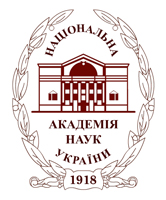Horban Yurii, Skachenko Olena
A Library in the Game: Teaching Information Literacy and Preventing PlagiarismAbstract: It was investigated that games and gaming are a popular component of the processes of formation of information literacy and academic integrity in libraries of foreign universities. It is revealed that the advantages of gaming library activity are the presence of challenge, curiosity, risk, competition, feedback. Described of gaming mechanics and design of 12 digital games developed in libraries in the USA, Canada and Portugal, aimed at preventing plagiarism, teaching information literacy and citing rules for the main styles. Screenshots of the games described in the article are contained in the presentation that opens with the activation of the QR code. Keywords: foreign university libraries, anti-plagiarism through games, gamification of library activities, online games.
Author(s) citation:
Cite:
Horban Yurii (2019). A Library in the Game: Teaching Information Literacy and Preventing Plagiarism. Bibliotechnyi visnyk, (5) 26-33. (In Ukrainan). doi: https://doi.org/10.15407/bv2019.05.026
References: - APA and MLA Citation Game. [In English].
- Broussard, Mary J. Snyder and Oberlin, Jessica Urick. (2011). Using online games to fight plagiarism: a spoonful of sugar helps the medicine go down. Indiana Libraries, 30(1), 28-39. [In English].
- Brull, Stacey and Finlayson, Susan. (2016). Importance of gamification in increasing learning. Journal Of Continuing Education In Nursing, 47, 8. [In English]. doi: https://doi.org/10.3928/00220124-20160715-09
- (2019). Essential facts about the computer and video game industry. [In English].
- Ferreira, Andreia and Silva, Frutuoso G. M. (2013). Gàmàgio: a game for plagiarism prevention. [In English].
- (2017). Gaming industry – facts, figures and trends. [In English].
- Gee, James. (2003).What video games have to teach us about learning and literacy. New York: Palgrave/Macmillan. [In English]. doi: https://doi.org/10.1145/950566.950595
- Haddad, Rami J. and Youakim, Kalaani. (2014). Gaming against plagiarism (GAP): A game-based approach to illustrateresearch misconduct to undergraduate engineering students. Proceedings of the 2014 American society for engineering education southeast section conference Macon, GA. [In English].
- How to recognize plagiarism: tutorials and tests. [In English].
- Markey, Karen, Leeder, Chris and Rieh, Soo Young. (2014). Designing online information literacy games students will want to play. Lanham, MD: Rowman and Littlefield Publishers. [In English].
- McCabe, J. and Wise, S. (2009). It’s all fun and games until someone learns something: assessing the learning outcomes of two educational games. Evidence Based Library and Information Practice, 4(4), 6-23. [In English]. doi: https://doi.org/10.18438/B8FC8M
- (2018). NMC Horizon Report. [In English].
- Paul Robeson Library: The Anti Plagiarism Game Show Cite is Right! [In English].
- Smale, M. A. (2011). Learning through quests and contests: Games in information literacy instruction. Journal of Library Innovation, 2 (2), 36-55. [In English].
- UF Digital Worlds Institute. Gaming Against Plagiarism. [In English].
- University of Florida George A. Smathers Libraries. Gaming Against Plagiarism. [In English]
- Werbach, Kevin, and Hunter, Dan. (2012). For the Win: how game thinking can revolutionize your business. Philadelphia: Wharton Digital Press. [In English].
- You Quote It, You Note It! [In English].
|
 bv.nbuv.gov.ua
bv.nbuv.gov.ua
![]() Content (2019, Issue 5)
Content (2019, Issue 5)![]()
![]()